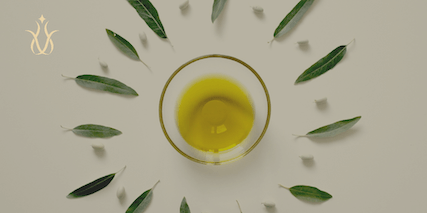Choosing between avocado oil and olive oil isn’t just a matter of taste – it’s about understanding their health benefits, suitability for different cooking methods, and cost. In this guide, we compare avocado oil vs olive oil to help you make an informed decision based on nutritional content, flavour profile, heat resistance, and affordability. Whether you’re frying, dressing, or dipping, read on to see which oil might be the best choice for your kitchen.
Key Takeaways
-
Avocado oil is available in refined and unrefined types, with cold-pressed unrefined avocado oil preserving more nutrients; it supports heart health due to its high monounsaturated fat and plant sterols content.
-
Olive oil, especially extra virgin, is high in vitamin E and antioxidants, beneficial for heart health; it’s available in various flavors with different smoke points, making some types suitable for high-heat cooking.
-
Both avocado oil and olive oil promote heart, skin, and eye health, enhance nutrient absorption with their monounsaturated fats, and possess anti-inflammatory properties.
Avocado Oil Unveiled

Derived from the fruit of the avocado tree, avocado oils serve as a healthier substitute for regular cooking oils. It’s a journey from tree to table, starting with the removal of the skin and seed before processing into a paste.
Following this, the paste undergoes pressing to extract the oil, resulting in a nutrient-rich elixir for your culinary needs.
Types of Avocado Oil
Avocado oil comes in two forms: refined and unrefined. The refined version, also known as refined avocado oil, with its neutral flavour, is perfect for baked goods or dishes where a strong oil flavour isn’t desired. On the other hand, unrefined avocado oil, with its nuttier taste and higher nutrient content, is versatile enough for both raw consumption and cooking. Your choice between the two could impact your health and the taste of your dishes.
Extraction Process
Why is cold-pressed avocado oil frequently hailed as superior? The secret lies in its extraction process. This method avoids high temperatures and chemical solvents, preserving the oil’s rich nutrient content and creating an oil that is as close to nature as possible.
Nutritional Highlights of Avocado Oil
Avocado oil serves as a bastion of nutrients. Its high content of monounsaturated fats contributes positively to heart health by maintaining healthy cholesterol levels. The oil also contains plant sterols, which can help modulate blood cholesterol levels and support cardiovascular health.
Plus, its antioxidant profile bolsters general wellness and offers nutritional benefits, making it a superb choice for health-conscious individuals.
Olive Oil Explored

Olive oil, the golden elixir of the Mediterranean, has been enhancing dishes and boosting health for thousands of years. Pressed from olives, this oil enjoys a storied past and an even more abundant flavour profile. But, like any gift of nature, not all olive oils are created equal.
Join us as we delve into the captivating realm of this time-honoured oil.
Varieties of Olive Oil
Ranging from the fruity extra virgin to the neutral light variant, olive oil offers a broad spectrum of choices. Extra virgin olive oil, made from the first cold-pressing of olives, retains more nutrients and flavour than virgin olive oil.
Light olive oil, on the other hand, is a blend of cold-pressed and refined oil, making it a fitting choice for high-heat cooking. The choice is yours, and each type has its unique charm.
Making Olive Oil
The production of olive oil merges time-honoured practices with contemporary advancements. The traditional method involves harvesting the olives, crushing them into a paste, and separating the solids from the liquid. Modern methods use centrifuges for separation and include stone removal for a less bitter oil.
No matter the method, maintaining the nutrient content of olive oil, particularly extra virgin, requires the avoidance of high temperatures and chemicals.
Olive Oil’s Nutrient Profile
Olive oil, a type of vegetable oil, stands out as a nutritional champion. Its high vitamin E content, coupled with a host of antioxidants and healthy fats, make it a heart-healthy choice, especially when compared to sources of saturated fat.
Plus, olive oil is slightly higher in vitamin E compared to avocado oil, giving it a slight edge in the nutrient department.
Taste Test: Flavour Comparisons

Now, it’s time to discuss flavour. While both oils have their unique taste profiles, it’s the avocado oil’s mild, slightly nutty flavour versus the rich, peppery taste of olive oil. So, which one wins the flavour battle? Well, it all boils down to personal preference and the dish you’re cooking.
Avocado Oil’s Palate Presence
Avocado oil is like the quiet friend who lets others shine. It has a mild, slightly nutty flavor that complements various dishes without overpowering them. So whether you’re sautéing veggies or baking a cake, avocado oil ensures that the natural flavours of your ingredients take centre stage.
Olive Oil’s Flavour Spectrum
On the other hand, olive oil is like the life of the party. Its flavour can range from fruity to peppery, adding a distinct taste to your dishes. Whether it’s drizzled over a salad or used to sauté onions for a sauce, olive oil brings a unique flair to your culinary creations.
Heat Tolerance: Smoke Point Differences

When it comes to cooking, not all oils are created equal. The smoke point — the temperature at which an oil starts to smoke and break down — can greatly influence an oil’s suitability for certain cooking methods. Oils with a higher smoke point are often preferred for high-heat cooking techniques.
So, how do these two rivals compare?
High Heat Cooking with Avocado Oil
Boasting a high smoke point of 482°F, avocado oil reigns supreme for high-heat cooking applications. Its stability under heat makes it suitable for various cooking methods, including:
-
Baking
-
Stir-frying
-
Sautéing
-
Grilling
No more worrying about your oil breaking down and spoiling the taste of your dishes!
Olive Oil’s Performance Under Heat
Contrastingly, olive oil exhibits a lower smoke point than avocado oil. However, it’s not all doom and gloom for olive oil lovers. Extra virgin olive oil is perfect for medium heat cooking, while refined extra light olive oil can handle higher heat, making it suitable for a range of cooking techniques.
Health Impact: Heart, Skin, and Eye Benefits

Apart from their culinary applications, both avocado and olive oil provide substantial health benefits. Packed with unsaturated fats and antioxidants, these oils are a boon for heart, skin, and eye health.
Let’s examine these benefits in detail.
Boosting Heart Health
The monounsaturated and polyunsaturated fats in both oils can help improve cholesterol levels, thus supporting heart health. Not just that, the presence of oleic acid and plant sterols in these oils can contribute to the reduction of LDL (bad) cholesterol.
So, next time you reach for a bottle of oil, remember your heart will thank you!
Nourishing Skin Health
Did you know that using avocado oil and olive oil can give you a beauty boost? Here are some benefits of these oils:
-
Packed with hydrating fatty acids and vitamin E
-
Provide moisture to the skin
-
Aid in wound healing
-
Make your skin glow from the inside out
So, go ahead and add these oils to your skincare routine — your skin will thank you!
Enhancing Eye Health
Eyes are the windows to the soul, and both avocado and olive oil can help keep them healthy. Thanks to their vitamin E and lutein content, these oils support eye health and prevent age-related disorders.
So, keep those eyes sparkling with a dash of avocado oil or olive oil in your diet!
Nutrient Absorption and Inflammation
The benefits of avocado and olive oil extend beyond their nutrient content. The monounsaturated fats in these oils aid in the absorption of fat-soluble nutrients, making your meals even more nutritious. Plus, they exhibit anti-inflammatory properties, providing additional health benefits.
Maximizing Nutrient Uptake
Ever noticed an enhanced taste in salads with an oil drizzle? The reason goes beyond mere flavour. The monounsaturated fats in avocado and olive oil enhance the absorption of vitamins and carotenoids, boosting the nutritional value of your meals.
So, don’t shy away from a little extra oil in your salad dressing!
Anti-Inflammatory Properties
Inflammation is often the root cause of many chronic diseases. Luckily, both avocado and olive oil have anti-inflammatory properties thanks to compounds like:
-
Oleic acid
-
Polyphenols
-
Carotenoids
-
Tocopherols
Including these oils in your diet could help reduce inflammation, contributing to overall health and wellness.
Cost and Accessibility
What about the cost of these nutrient-rich oils? Avocado oil generally comes with a higher price tag than olive oil, largely due to the higher production costs. However, remember that the quality of the oil also factors into the price.
Pricing Factors
Keep in mind while shopping for oils, the price often mirrors the quality. The cost of avocado oil and olive oil is influenced by production expenses, processing methods, and quality. So, don’t let a higher price deter you — it often means you’re getting a better product.
Shopping Tips
Eager to commence your oil shopping? Here’s a pro tip:
-
Choose oils in dark glass bottles to protect them from light and oxygen, which can cause them to go rancid.
-
Store your oils in a dark place, like a pantry, to preserve their quality.
-
Buying high-quality oils in smaller quantities is better to avoid waste and deterioration.
Summary
We’ve journeyed through the world of avocado and olive oils, exploring their taste profiles, health benefits, and culinary uses. No matter your preference, both oils offer impressive health benefits and versatility in the kitchen. So, whether you’re a die-hard avocado oil fan or an olive oil enthusiast, remember that each oil has its unique charm and benefits. Use them wisely, and your body — and taste buds — will thank you!
Frequently Asked Questions
What are the main differences between avocado oil and olive oil?
Avocado oil has a higher smoke point and neutral flavour, making it suitable for high-heat cooking, while olive oil has a lower smoke point and rich, peppery taste, making it ideal for medium-heat cooking.
Which oil is healthier, avocado oil or olive oil?
Both avocado oil and olive oil offer similar health benefits, so choose based on your dietary needs and personal preference.
How can these oils affect nutrient absorption?
Avocado and olive oil contain monounsaturated fats that can help improve the absorption of fat-soluble nutrients such as vitamins A, D, E, and K, increasing their bioavailability.
Are there any anti-inflammatory benefits of these oils?
Both oils contain compounds that have anti-inflammatory properties, such as oleic acid, polyphenols, carotenoids, and tocopherols.
Why is avocado oil more expensive than olive oil?
Avocado oil is more expensive than olive oil because the production and processing of avocados incur higher costs.






